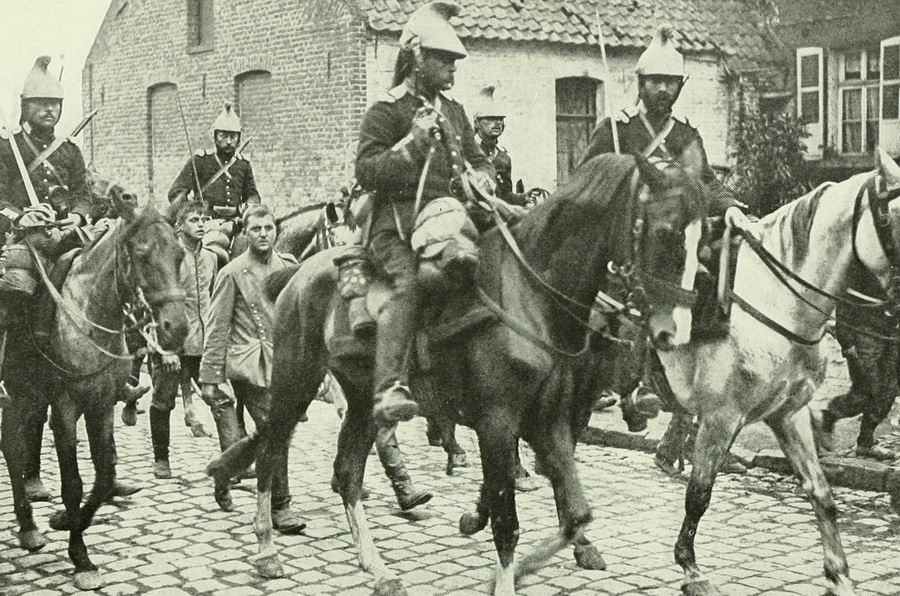First Blood in the Great War? June 12, 2014
Author: Beach Combing | in : Contemporary , trackbackLieutenant Albert Mayer of the fifth Baden Mounted Jäger Regiment brought seven German cavalry onto a ridge at Jonchery to the south-east of Belfort close to the French German border. On this ridge the riders ran into representatives of the forty-fourth Infantry Regiment, who had come to intercept them, and fighting broke out. Mayer smashed his broadsword onto a French sentry, while a colleague pushed a lance into another French man’s chest and a third shot Corporal Jules-André Peugeot, who died of his wounds half an hour later. The French ran for cover and then turned their fire on the enemy: their first casualty was Mayer, who was shot first in the stomach then in the head. The other Germans sensibly scattered.
Now the French and the Germans have been wretchedly killing each other for centuries. So why should this particular event matter more than any other? Well it matters because of the date. The fight took place at 9.59 on 2 August the day before Germany and France declared war on each other. By then, of course, it was generally understood that war was going to happen, particularly among the ruling classes of the two countries: in fact, many in the ruling classes were positively rubbing their hands with excited glee. But what kind of incompetence allowed this early death, sometimes said to have been the first casualty of the Great War (something that strictly speaking it is not)? Other candidates for the first death in the Great War: drbeachcombing AT yahoo DOT com
The fault or merit was on the German side because the skirmish took place on the French side of the border. In fact, the French infantry had gone to ‘arrest’ the Germans: Peugeot, who had just thirty minutes left to live, shouted out ‘Halt!’ The Jäger had been sent to reconnaisance the border and had been encouraged to press into French territory given a suprising lack of French soldiery in the border area: all in the interests of more information for the next day. Note that the French military had been pulled back from the border to avoid misunderstandings given the tense international situation.
Peugeot and his killer Mayer, who had grown up in towns not thirty miles apart on either side of the border, were, next, united in death. Both bodies were laid out in a nearby barn. Peugeot was buried the day after with full military honours before the war had officially begun. Mayer was, meanwhile, also buried honourably in a special funeral put on and paid for by French officers. The war began with a certain amount of chivalry then. It goes without saying that this chivalry, the broadswords, the ‘halts’, the plush uniforms and the nice horses wouldn’t last. Within seventy two hours the war had become, already, the worst in human experience.
17 June 2014: Billie Pink writes ‘Your post reminded me of a documentary I helped to make a long time ago. First British contact and, as you noted in your final paragraph, the rapid transition from ‘chivalric’ cavalry charges to mechanised modern warfare.’ Well worth watching, particularly the first twenty minutes. Jullien writes ‘You asked Thursday “Other candidates for the first death in the Great War“. I haven’t found a name but the first dead of WW1 was very probably a Serbian killed when Austrian artillery and monitors began to bomb Belgrade the 29th of july 1914.’ Thanks Billie and Jullien!
26 June 2014: SJ writes in asking about my proof for a second French death. I can’t find it and perhaps the lance to the chest was not fatal? If anyone can help with this detail? It would be all too typical of human nature that no one cares about the second death of the war because he was, well, second…



